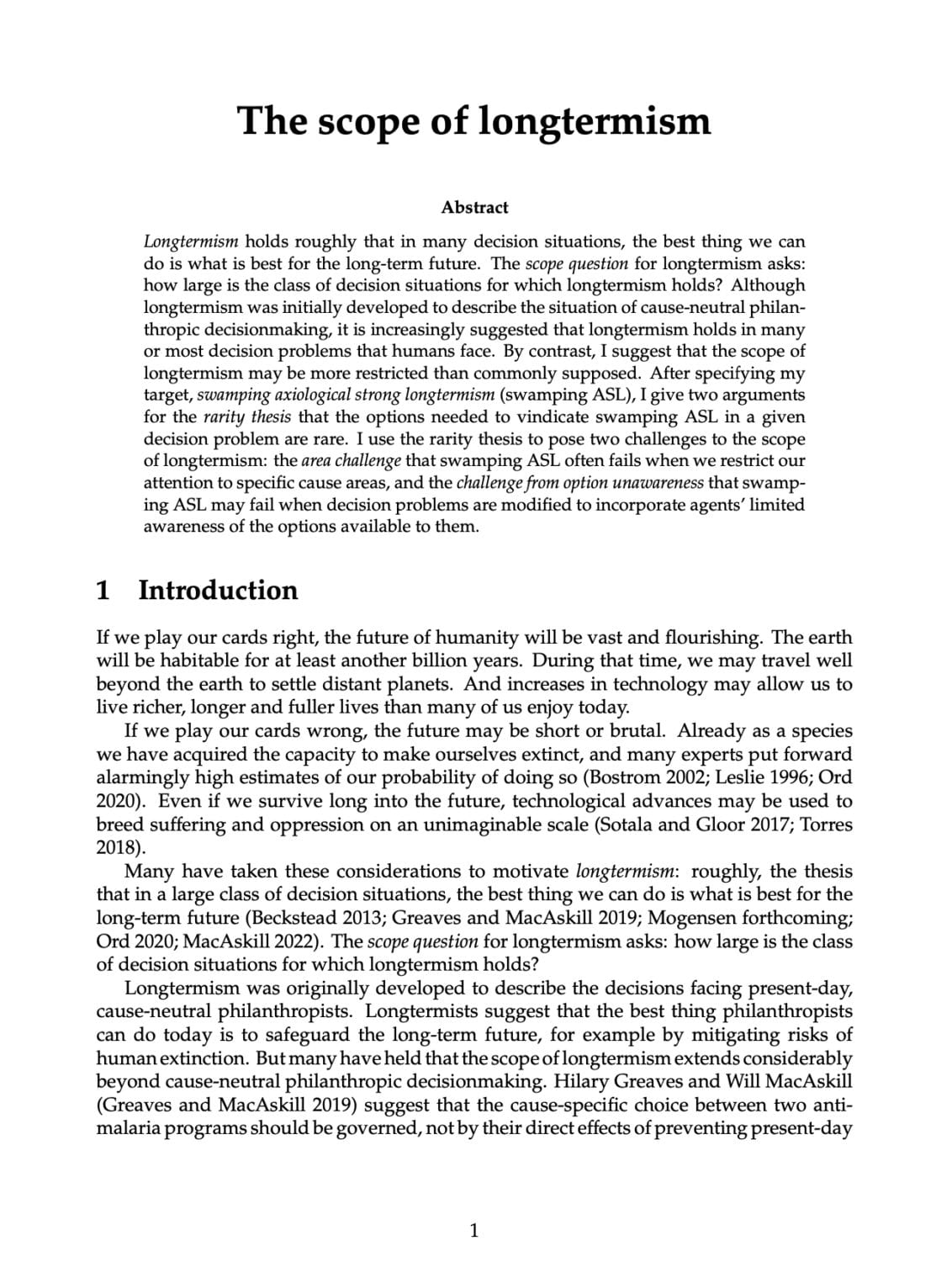The scope of longtermism
David Thorstad (Global Priorities Institute, University of Oxford)
GPI Working Paper No. 6-2021
Longtermism holds roughly that in many decision situations, the best thing we can do is what is best for the long-term future. The scope question for longtermism asks: how large is the class of decision situations for which longtermism holds? Although longtermism was initially developed to describe the situation of cause-neutral philanthropic decisionmaking, it is increasingly suggested that longtermism holds in many or most decision problems that humans face. By contrast, I suggest that the scope of longtermism may be more restricted than commonly supposed. After specifying my target, swamping axiological strong longtermism (swamping ASL), I give two arguments for the rarity thesis that the options needed to vindicate swamping ASL in a given decision problem are rare. I use the rarity thesis to pose two challenges to the scope of longtermism: the area challenge that swamping ASL often fails when we restrict our attention to specific cause areas, and the challenge from option unawareness that swamping ASL may fail when decision problems are modified to incorporate agents’ limited awareness of the options available to them.
Other working papers
‘The only ethical argument for positive 𝛿’? – Andreas Mogensen (Global Priorities Institute, Oxford University)
I consider whether a positive rate of pure intergenerational time preference is justifiable in terms of agent-relative moral reasons relating to partiality between generations, an idea I call discounting for kinship. I respond to Parfit’s objections to discounting for kinship, but then highlight a number of apparent limitations of this…
Time discounting, consistency and special obligations: a defence of Robust Temporalism – Harry R. Lloyd (Yale University)
This paper defends the claim that mere temporal proximity always and without exception strengthens certain moral duties, including the duty to save – call this view Robust Temporalism. Although almost all other moral philosophers dismiss Robust Temporalism out of hand, I argue that it is prima facie intuitively plausible, and that it is analogous to a view about special obligations that many philosophers already accept…
AI takeover and human disempowerment – Adam Bales (Global Priorities Institute, University of Oxford)
Some take seriously the possibility of AI takeover, where AI systems seize power in a way that leads to human disempowerment. Assessing the likelihood of takeover requires answering empirical questions about the future of AI technologies and the context in which AI will operate. In many cases, philosophers are poorly placed to answer these questions. However, some prior questions are more amenable to philosophical techniques. What does it mean to speak of AI empowerment and human disempowerment? …

